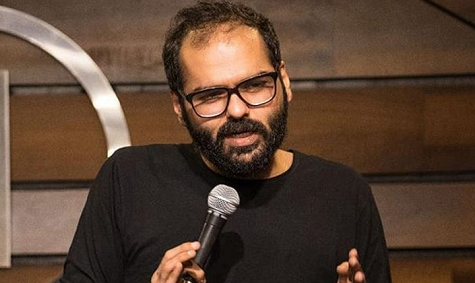In January this year, stand-up comedian Kunal Kamra was banned by several airlines after he heckled Republic TV Anchor Arnab Goswami on a flight. At the end of the year now, Kamra is making news again because of Arnab.
Reacting to grant of prosecution sanction for contempt proceedings granted against him, Kamra remained defiant and said: “No lawyers, no apology, no fine, no wastage of space.” He stressed that he will neither retract his tweets, nor apologize for them.
It so happened that Kamra passed some remarks regarding the Supreme Court after it granted bail to Arnab a couple of days ago. These comments angered some people and they wrote to Attorney General K K Venugopal to allow them to initiate contempt proceedings against Kamra. Venugopal has now given permission to at least eight people to do so.
Officiating as the top law officer of the country, Venugopal said in a letter addressed to a lawyer that Kamra had “crossed a line”. He wrote: “It is time people understand attacking the Supreme Court unjustifiably and brazenly will lead to punishment.”
He said that Kamra’s tweets were “gross insinuation” against the apex court and it’s judges. “These people believe that brazen condemnation of the judges is freedom of speech.”
Apparently, Kamra had made four tweets which clearly insulted judiciary and criticized the Supreme Court. One of his tweet read:
DY Chandrachud is a flight attendant serving champagne to first class passengers after they’re fast tracked through, while commoners don’t know if they’ll ever be boarded or seated, let alone served.
*Justice*— Kunal Kamra (@kunalkamra88) November 11, 2020
Another one read so:
All lawyers with a spine must stop the use of the prefix “Hon’ble” while referring to the Supreme Court or its judges. Honour has left the building long back…
— Kunal Kamra (@kunalkamra88) November 11, 2020
Moreover, Kamra has also posted a morphed picture of Supreme Court building filtering in orange shade and depicting a BJP flag hoisted in the foyer of the Supreme Court.
Further, AG has added that freedom of speech was subject to contempt of court and it was high time people should understand, not to criticize the institution ‘unjustifiedly and brazenly’ which ultimately attract to punishment under Contempt of Courts Act, 1972.


